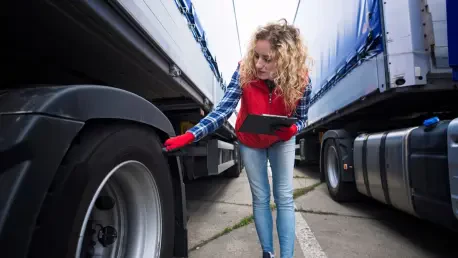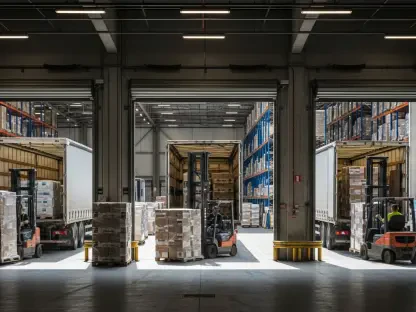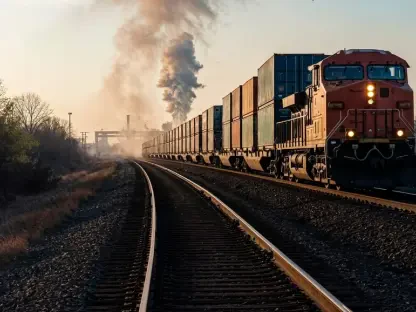The United States trucking industry finds itself on the precipice of significant regulatory evolution as the Federal Motor Carrier Safety Administration (FMCSA) announces an ambitious proposal to overhaul 18 rule changes. In an era where efficiency, safety, and technological integration are paramount, these proposed amendments are poised to reshape the regulatory landscape for truck drivers and motor carriers. The announcement not only highlights a strategic approach toward simplifying compliance but also offers an intriguing glance into the future of trucking logistics and governance.
Navigating an Efficient Compliance Framework
The FMCSA is committed to enhancing the functionality and simplicity of compliance regulations for the trucking industry. The proposal sets forth pivotal changes, such as the elimination of redundant self-reporting requirements for commercial driver’s license (CDL) holders. With the anticipated deployment of an electronic exchange system for traffic violations among state licensing agencies by 2024, drivers will experience streamlined processes and improved efficiency. The plans to accommodate dual-status military technicians further emphasize a more cost-effective and efficient pathway to CDL qualifications, reflecting a comprehensive approach toward fostering inclusivity and reducing unnecessary burdens.
Exploring the Proposed Rule Changes
In a thorough examination of FMCSA’s proposed rules, discussions and analyses have brought forth valuable insights. A prominent proposal involves the revision of accident reporting protocols, aiming to exclude x-rays and imaging from medical treatment definitions—clarifying and simplifying requirements for vehicles involved in accidents. Amendments suggested include redefining vehicle examination reporting processes, thus alleviating the paperwork burden on motor carriers through the adoption of electronic inspection technologies.
Adapting CDL Regulations to Facilitate Operations
The discussion on the revision of CDL requirements underscores FMCSA’s commitment to refining operational efficiency. The shift toward electronic exchange systems and the inclusion of military technicians unveil overarching goals of minimizing administrative obstacles and ensuring comprehensive training opportunities. Industry experts have hailed these changes as a mechanism to embrace modern technological integrations, positioning FMCSA at the forefront of regulatory innovation.
Safety and Technological Progress in Panels
Panel discussions cast a spotlight on safety measures and technological advancements, exploring the current trends shaping the industry. From improved safety standards at railroad crossings to the modernization of vehicle accessory regulations, experts exchange perspectives on how these proposed rules promise to pave the way for a safer and more streamlined trucking ecosystem. Debate around safety innovations also underscores the crucial balance between stringent safety norms and operational flexibility.
Interactive Workshops Enhance Learning
The event featured hands-on workshops and interactive sessions, aimed at engaging participants and deepening their understanding of proposed regulatory changes. Participants immersed themselves in practical demonstrations, which enhanced their grasp of technological applications in compliance processes. These workshops not only facilitated peer learning and collaboration but also sparked innovative ideas and discussions about adapting to regulatory transitions effectively.
Innovative Products and Technological Applications
Presentations on technological advancements provided participants with a glimpse into the future of trucking equipment and product functionalities. Innovations showcased ranged from advanced electronic logging devices to transformative safety gear, each underscoring the FMCSA’s focus on integrating cutting-edge technology within regulatory frameworks. Through engaging product demos, participants gained insights into how these advancements could seamlessly enhance operations while maintaining safety standards.
Long-Term Prospects and Industry Evolution
The proposed changes herald a future of dynamic adjustments in compliance regulations. Insights gleaned from the discussion unveil a trajectory that aligns regulatory practices with contemporary technological demands. As the industry looks ahead, FMCSA’s initiatives are expected to generate a ripple effect, prompting advancements in efficiency and safety while reducing compliance-related complexities. This strategic initiative represents a pivotal moment for the industry—setting the stage for regulatory practices that harmonize evolving vehicular technology with streamlined compliance mandates.
In conclusion, the FMCSA’s proposal signifies a forward-thinking step toward optimizing trucking logistics through regulatory adaptation. As the industry embraces these transformative rules, stakeholders are equipped with knowledge and tools to navigate an evolving landscape poised to redefine trucking compliance and safety standards. The emphasis on technological integration and efficiency not only sets new benchmarks but heralds an era of innovative regulatory practices conducive to future-ready trucking operations.









